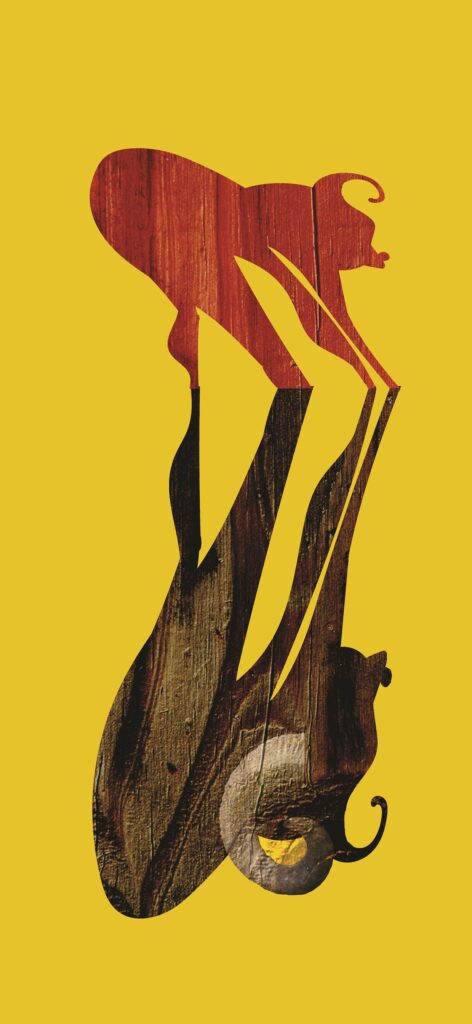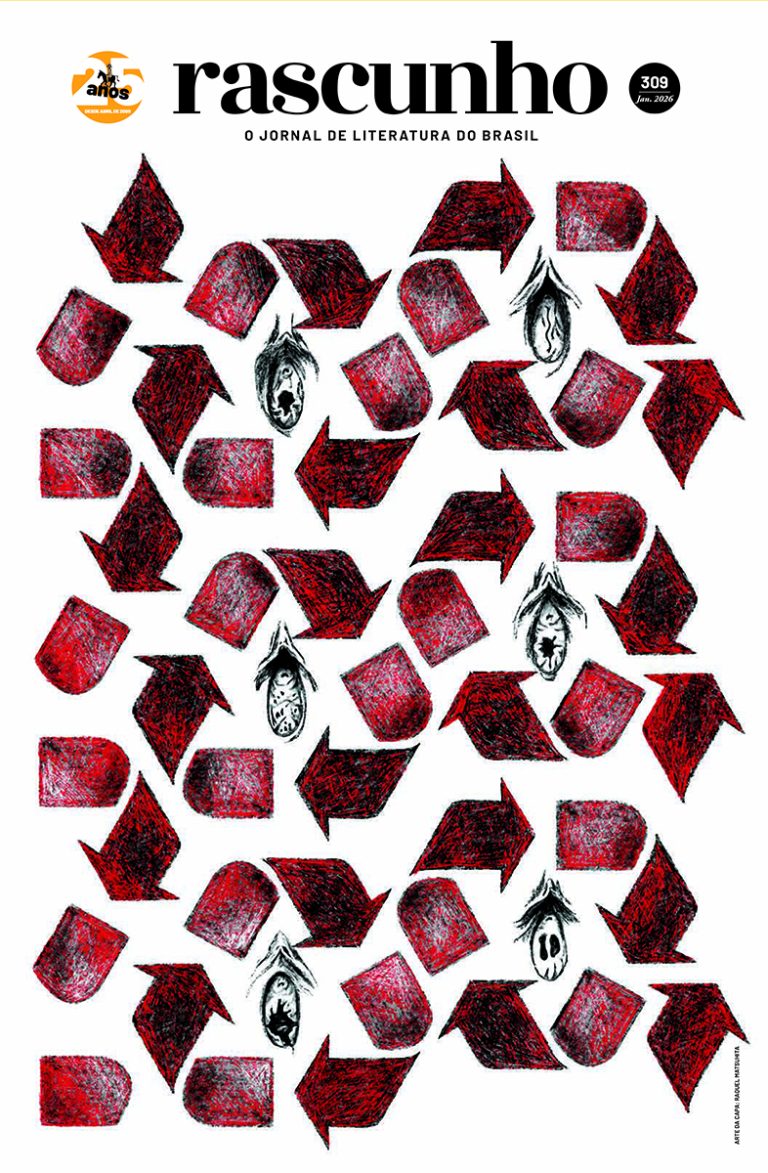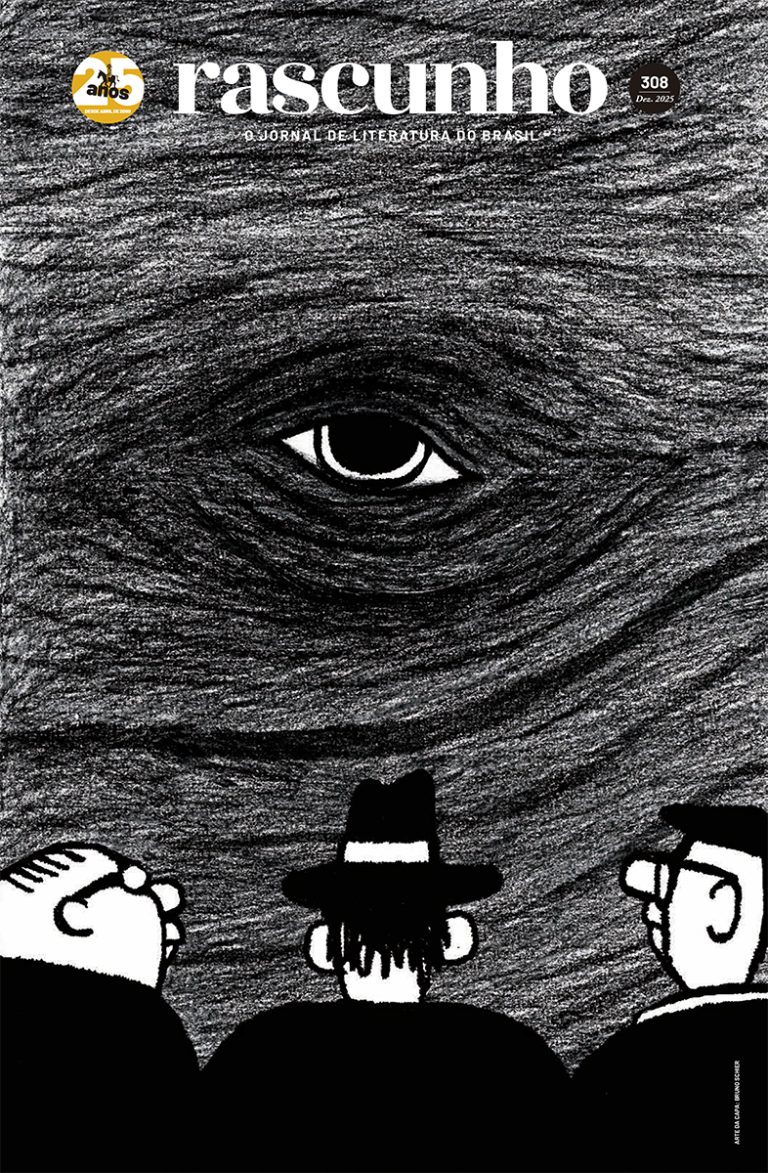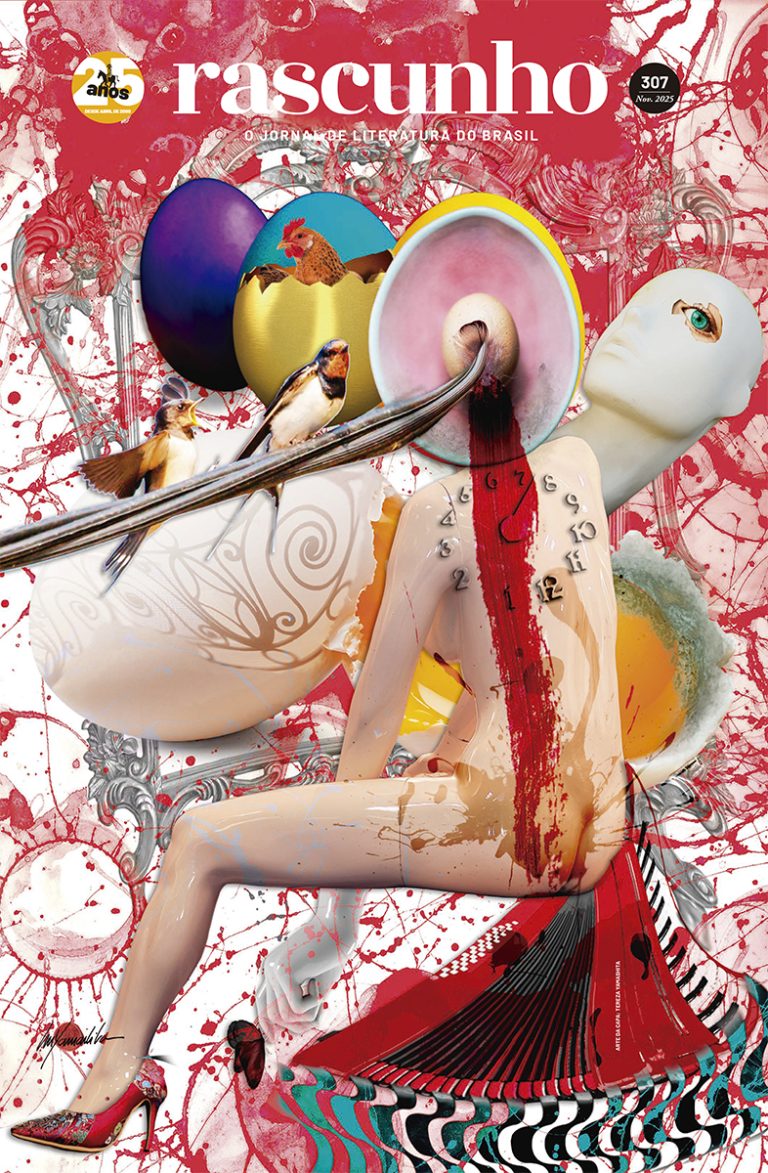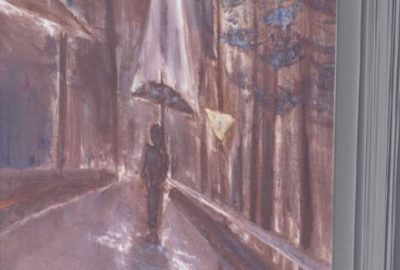Buffalo
I have wrestled a buffalo
into this poem
the least I could do
for an endangered species.
I have given him a tree
for shade, a stream
to slake his thirst.
A hulk of night, stranded
on my gold-green pasture
he shakes stars from his fur,
paws thunder into the ground.
The reader is to blame
who brings red into the poem.
Búfalo
Arrastei um búfalo
até este poema
o mínimo que pude fazer
por uma espécie ameaçada.
Dei-lhe uma árvore
para fazer sombra, um riacho
para saciar-lhe a sede.
Um pedaço de noite, preso
no meu pasto dourado,
ele esparge estrelas ao sacudir-se,
planta trovão no solo ao escavá-lo.
Será o culpado o leitor
que puser vermelho no poema.
(Tradução: Paulo Henriques Britto)
…..
Two Wings
She would drift into the kitchen
trailing fragments of a hymn that spoke of God,
a river, the pair of golden wings
that would be hers on Judgement Day
and were you to look at her then
you might well decide your best bet
for a meal would be to eat out:
she was blind and appeared a little lost
in her tile and linoleum kingdom.
But she vaguely addressed the garlic,
the onion, the tomato and between her hands
rubbed a sprig of rosemary over olive oil.
A fragrance then arose and you decided
you had best sit down. And you did.
Did you fall asleep? Did you dream?
You awoke to the smart snap of sails:
the billowing of a tablecloth.
She returned and a generous bowl
was placed in front of you.
Then she crossed her arms and waited:
her prayer done, your eating was its Amen.
Duas asas
Vagueava pela cozinha
puxando pedaços de um hino que falava de Deus,
um rio, o par de asas douradas
que seria seu no Dia do Juízo Final
e se acaso olhasse para ela então
podia apostar sem sombra de dúvida
que melhor seria comer fora:
era cega e parecia meio perdida
no seu reino de azulejo e linóleo.
Mas lidava vagamente com o alho,
a cebola, o tomate e entre as mãos
esfregava o alecrim sobre o óleo de oliva.
Uma fragrância então subia e você decidia
que melhor seria sentar. E sentava.
Pegou no sono? Sonhou?
Acordou a um vigoroso estalar de velas:
o vagalhão de uma toalha de mesa.
Assim que ela voltava uma tigela generosa
se punha à minha frente.
Então cruzava os braços e esperava:
reza feita, você comer era o Amém.
(Tradução: Maria Lúcia Milléo Martins)
…..
Guaratiba
This is what it’s like
to sleep by the rumbled
syntax of the sea:
the demagogue pours
sounds into your ears
that state nothing
but so loudly affirm:
the stretch and sweel
of a sentence rising
that finally breaks
leaving in its wake
the immediate rise
of the next one:
speak in metaphors
though you miss the point:
the sea hammer strikes
and strikes again
until you agree
this harangue will not
brook your objections:
by that roar seduced,
spellbound you fall
asleep: a blue pulse
in a pillowed ear.
Guaratiba
Isso é o que dá
dormir perto da sintaxe
estrondosa do mar:
o demagogo derrama
sons aos seus ouvidos
que não dizem coisa alguma
mas bem alto proclamam
o estender e o ondular
de uma frase se erguendo
que finalmente se espraia
deixando em seu rastro
a imediata subida
da próxima:
fale em metáforas
mesmo arriscando engano:
o mar martela
e martela de novo
até que se entenda
que essa arenga não
tolera objeções:
por aquele estrondo seduzido,
enfeitiçado pega
no sono: um pulso azul
no ouvido contra o travesseiro.
(Tradução: Maria Lúcia Milléo Martins)
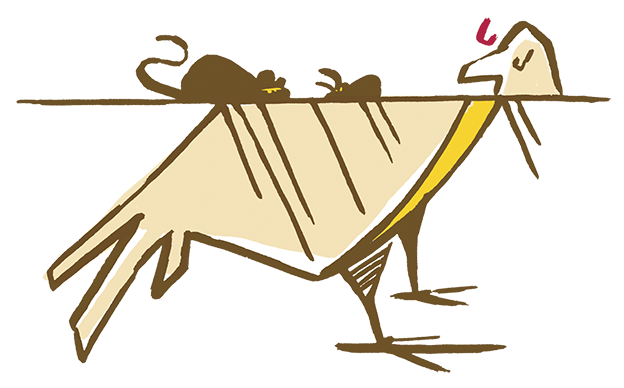
A pelican in the wilderness
When the woman with the mapa mundi
tatooed on her behind said boys
the world is yours for the taking, I
for one, remained skeptic. I knew
the rich got to the table first
and once done, started on seconds.
The rest wait their turn, blue
with hunger, sucking on empty spoons.
Two occupations broke my father
and I don’t mean jobs. Then he fled
to the promised land, bruised
and burdened with an immigrant’s heart.
He lives in America for Christ, work,
the bottle: sits on the sofa,
half plastered, Sunday mass on the tube
in a vernacular only half understood.
Once, I walked into the room and saw
the old man kneeling on the carpet.
He bowed his head to a flickering
on the screen and then keeled over.
Every month the old geezers gather
to lick wounds from skirmishes
no history book will ever register.
After a joint, sometimes I joint them:
the untelligentsia of the old country
sweating im the greaseshops of Oakland
alongside blacks and chicanos
they, too quickly, learned to hate.
Before the night is done, as if on cue,
they will raise a silente toast
to Petras’ letter framed on the wall.
Written just before he was neutralized
by the NKVD, it brims with cheery News
but ends in a biblical non-sequitur,
“We particularly like Psalm 102.”
You might call it their drinking song:
I am like the pelican in the wilderness.
I am like an owl of the desert.
My days are like a shadow that declineth
and I am withered like grass.
I remember the morning he came
into my room; I knew something was wrong.
“Today is a sad day. Day of shame.
The americans have published a map
no longer showing our beloved Lithuania
as disputed territory”. And then he wept.
Our beloved Lithuania? It means nothing
to me except some names, photographs
and a territory staked in his memory
that stands between us and which I cannot traverse.
That drunken woman offering us her bum:
what else has history been this century?
Um pelicano no deserto
Quando a mulher com o mapa-múndi
tatuado no traseiro disse meninos
tomem posse que o mundo é vosso,
pelo que me toca, continuei cético.
Sabia que os ricos chegam à mesa primeiro
fartam-se e recomeçam.
O resto espera a vez, verde
de fome, lambendo colher vazia.
Duas ocupações alquebraram meu pai
e não digo profissões. Então fugiu
para a terra prometida, ferido
e com o coração pesado de imigrante.
Vive agora na América por Cristo, trabalho
e garrafa: senta no sofá,
meio embriagado, missa de domingo na tv,
num vernáculo pouco entendido.
Uma vez, entrei na sala e vi
o velho ajoelhando no tapete.
Fazia reverência a uma oscilação
na tela e caia de bêbado.
Todo mês os velhotes se reúnem
para lamber feridas das escaramuças
que livro de história algum vai registrar.
Depois de um baseado, às vezes me junto a eles:
a intelligentsia do velho país
suando graxa nas garagens de Oakland
aprendendo rápido demais
a odiar negros e chicanos.
Antes da noite acabar, como se na hora certa,
fazem um brinde silencioso
à carta de Petras emoldurada na parede.
Escrita pouco antes de ser neutralizado
pela NKVD, transborda de boas novas
mas acaba em non-sequitur bíblico,
“Gostamos particularmente do Salmo 102”.
Que se pode chamar de canto do beberico:
Sou como o pelicano na soledade
Semelhante à coruja das ruinas
Como a sombra que se estira são os meus dias,
Vou murchando como a relva.
Lembro a manhã em que veio
ao meu quarto; sabia que tinha algo errado.
“Hoje é um dia triste. Dia de vergonha.
Os americanos publicaram um mapa
não mais mostrando nossa amada Lituânia
como território disputado”. E então chorou.
Nossa amada Lituânia? Não significa coisa alguma
para mim exceto alguns nomes, fotografias
e um território fixo em sua memória
que se interpõe entre nós e que não consigo atravessar.
Aquela mulher nos oferecendo a bunda:
o que mais tem sido a história deste século?
(Tradução: Maria Lucia Milléo Martins)
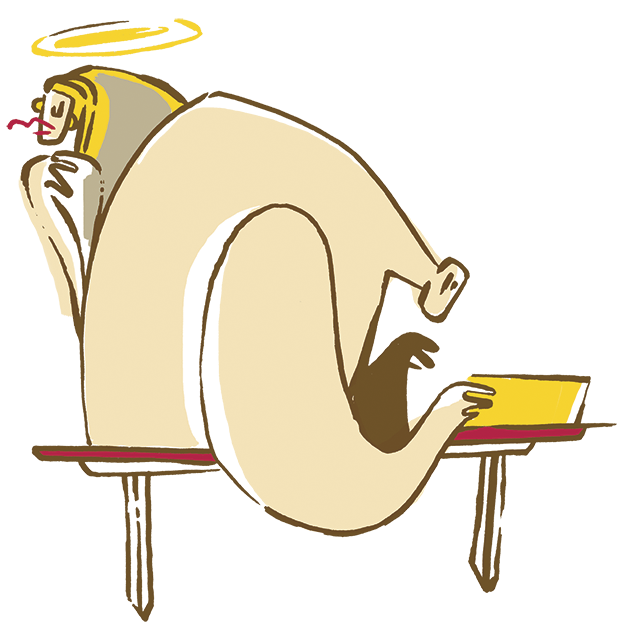
“
Canção de um corvo, morrendo
Adeus ao sol
meu pai
que me abençoou
obstinadamente todo dia.
Eu maldisse não ter sido feito
à imagem de seu brilho.
Minha mãe, a lua,
não fez melhor.
Seu amor pelo branco
em robes de seda, chinelas,
traiu sua rejeição.
Adeus ao milho:
minarete de doçura.
Fazendeiros, perdoem-me a pilhagem diária.
Perdoem-me ainda
ratos do campo, meus irmãos,
por ter caçoado de seu medo
quando minha sombra assomava
ampla sobre aqueles campos.
Minhas irmãzinhas,
as formigas:
Deixo-as sabendo
que como Antígona
vocês vão vir
e enterrar seu irmão.
Que o façam por interesse pessoal
não diminuirá minha gratidão.
(Tradução: Moema Vilela)
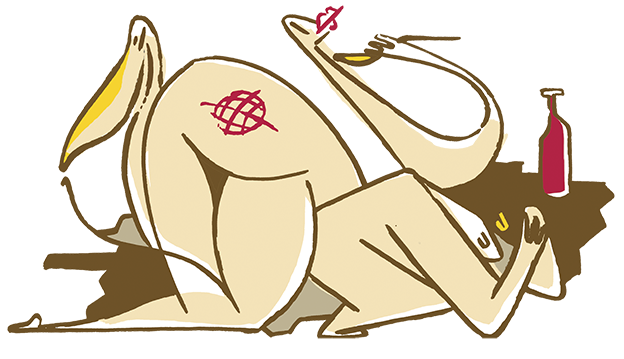
Mobius Strip
Sweetie, consider Spinoza:
pleasure, he wrote, accompanied
by the idea of an external cause
is love. So there you have it:
yours, the pleasure, naked in my arms,
while I, delighted, its external cause
who, in bringing you your pleasure
am given such pleasure in return.
So there we have it: in the alternating
circuitry of this bed, taking pleasure
then being its cause are roles
lovers, all too gladly, exchange.
Fita de Mobius
Benzinho, considere Spinoza:
prazer, escreveu ele, acompanhado
da ideia de uma causa externa
é amor. Então aí está:
seu, o prazer, nua em meus braços,
enquanto eu, deleitado, sua causa externa
que, em dando a você prazer,
recebo esse prazer de volta.
Então aí estamos: no circuito
alternativo dessa cama, recebendo prazer,
depois provocando, são papéis
que os amantes jubilosos trocam.
(Tradução: Maria Lucia Milléo Martins)

